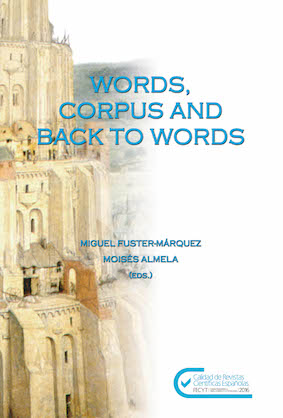Corpus-driven insights into the discourse of women survivors of Intimate Partner Violence
DOI:
https://doi.org/10.7203/qf.22.11309Keywords:
intimate partner violence (IPV), digital discourse, CDS, corpus, LIWC Abstract
Abstract
Despite its ubiquity, Intimate Partner Violence (IPV) is still under-researched from a Critical Discourse Studies (CDS) perspective. Thus, this paper investigates the discourse of women survivors of IPV focusing on a corpus-driven examination of the data. This is done after applying the text-analysis software tool LIWC (Linguistic Inquiry and Word Count) to a 120,000-word corpus collected from an anonymised, public, online forum available to IPV survivors. I contrast a plethora of linguistic phenomena in three online communities embedded within this forum (‘Is it Abuse?’, ‘Getting out’ and ‘Life after abuse’) in the attempt to sketch out how the discursive output varies across these three stages. This paper shows how pronominal distribution plays a role in the forging of collective identity. Differences in the emotional tone across the three explored groups are also identified. Useful though these corpus-driven pointers may be, this study also warns of the precaution with which findings solely deriving from quantitative analyses need to be treated.
 Downloads
Downloads
Downloads
Published
How to Cite
-
Abstract959
-
PDF478
-
PDF (Español)121
-
PDF (Català)147
Issue
Section
License
 Este obra está bajo una licencia de Creative Commons Reconocimiento-NoComercial-SinObraDerivada 4.0 Internacional.
Este obra está bajo una licencia de Creative Commons Reconocimiento-NoComercial-SinObraDerivada 4.0 Internacional.
Authors who publish with this journal agree to the following terms:
- Authors retain copyright and grant the journal right of first publication with the work simultaneously licensed under a Creative Commons Attribution License that allows others to share the work with an acknowledgement of the work's authorship and initial publication in this journal.
- Authors are able to enter into separate, additional contractual arrangements for the non-exclusive distribution of the journal's published version of the work (e.g., post it to an institutional repository or publish it in a book), with an acknowledgement of its initial publication in this journal.
- Authors are permitted and encouraged to post their work online (e.g., in institutional repositories or on their website) prior to and during the submission process, as it can lead to productive exchanges, as well as earlier and greater citation of published work (See The Effect of Open Access).



